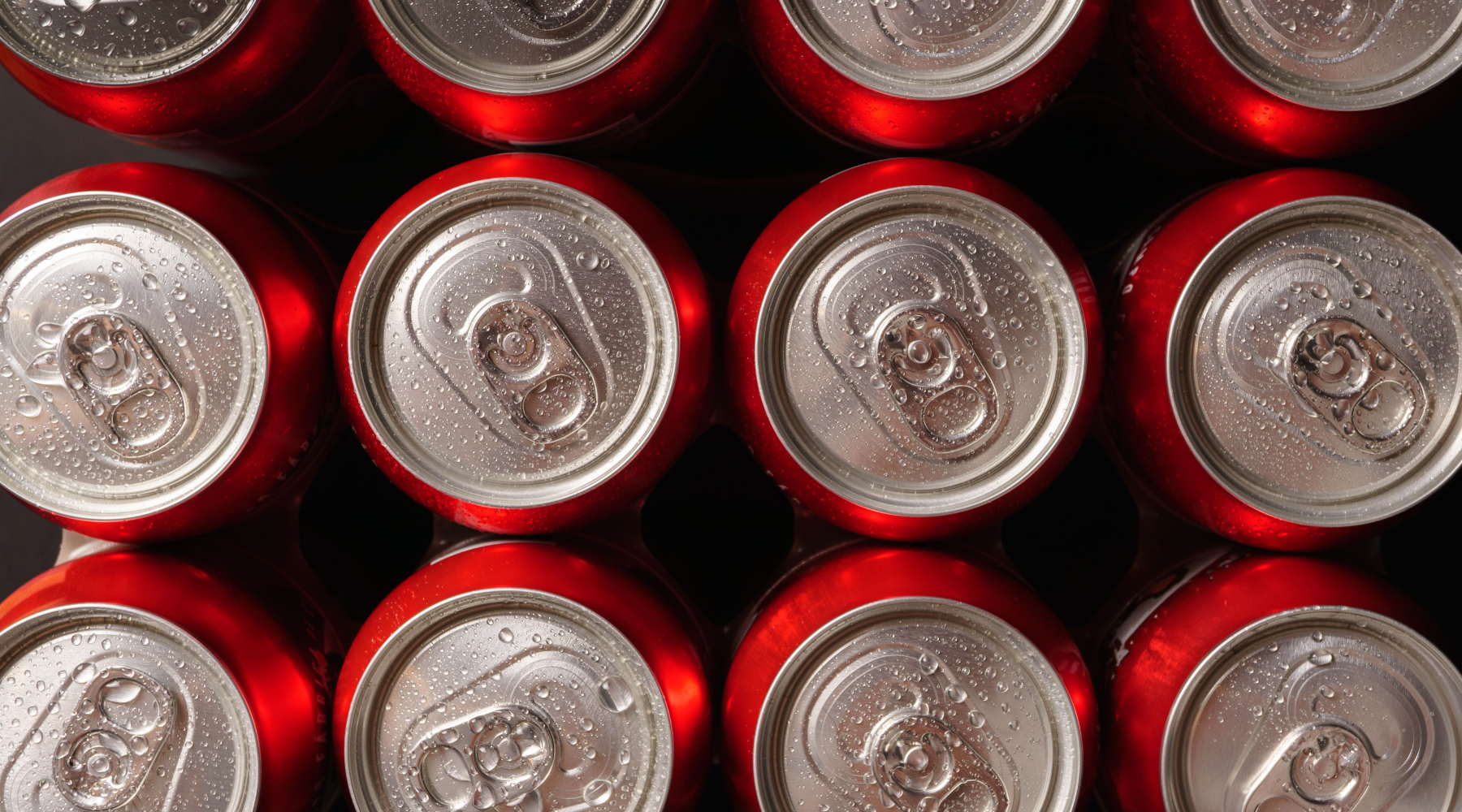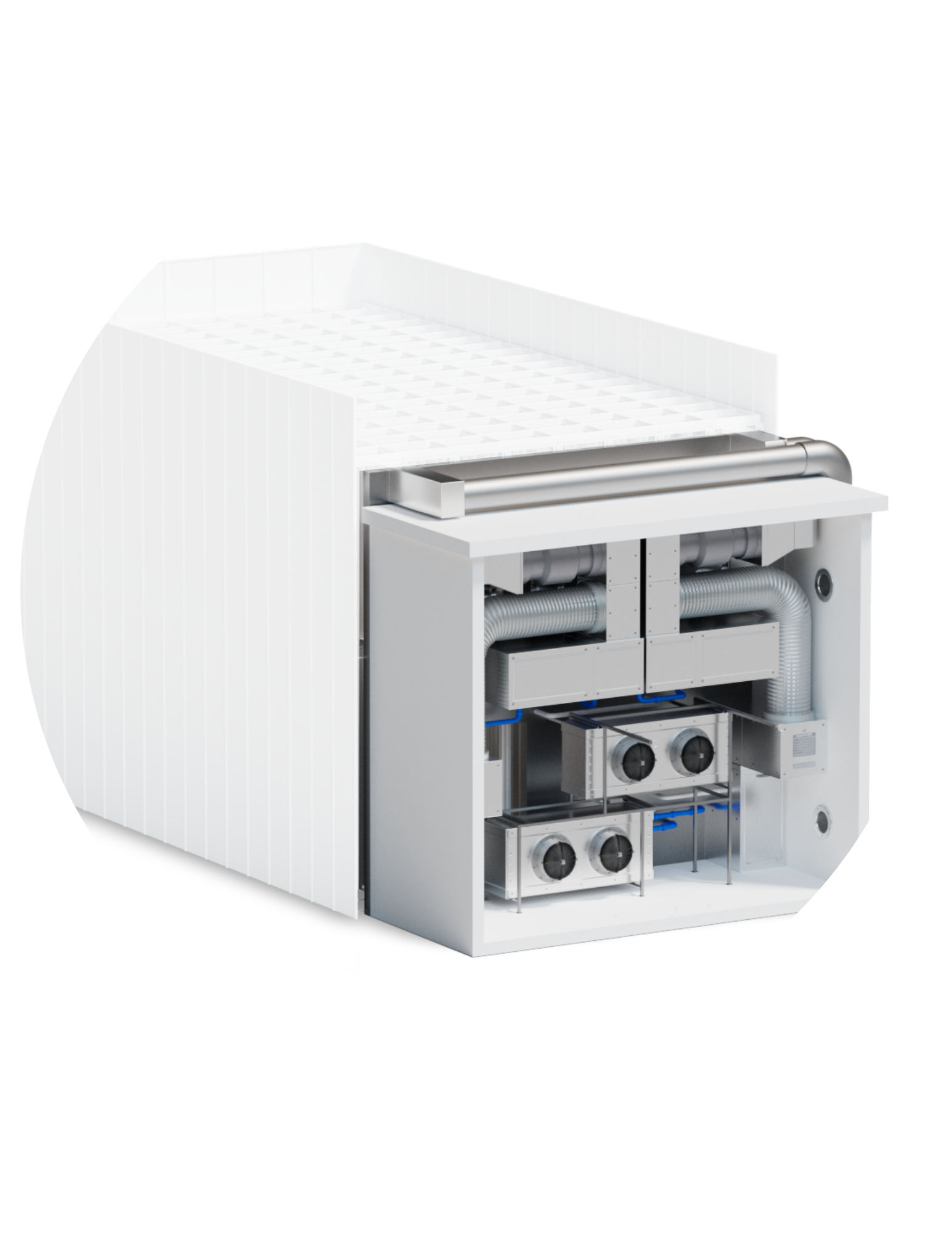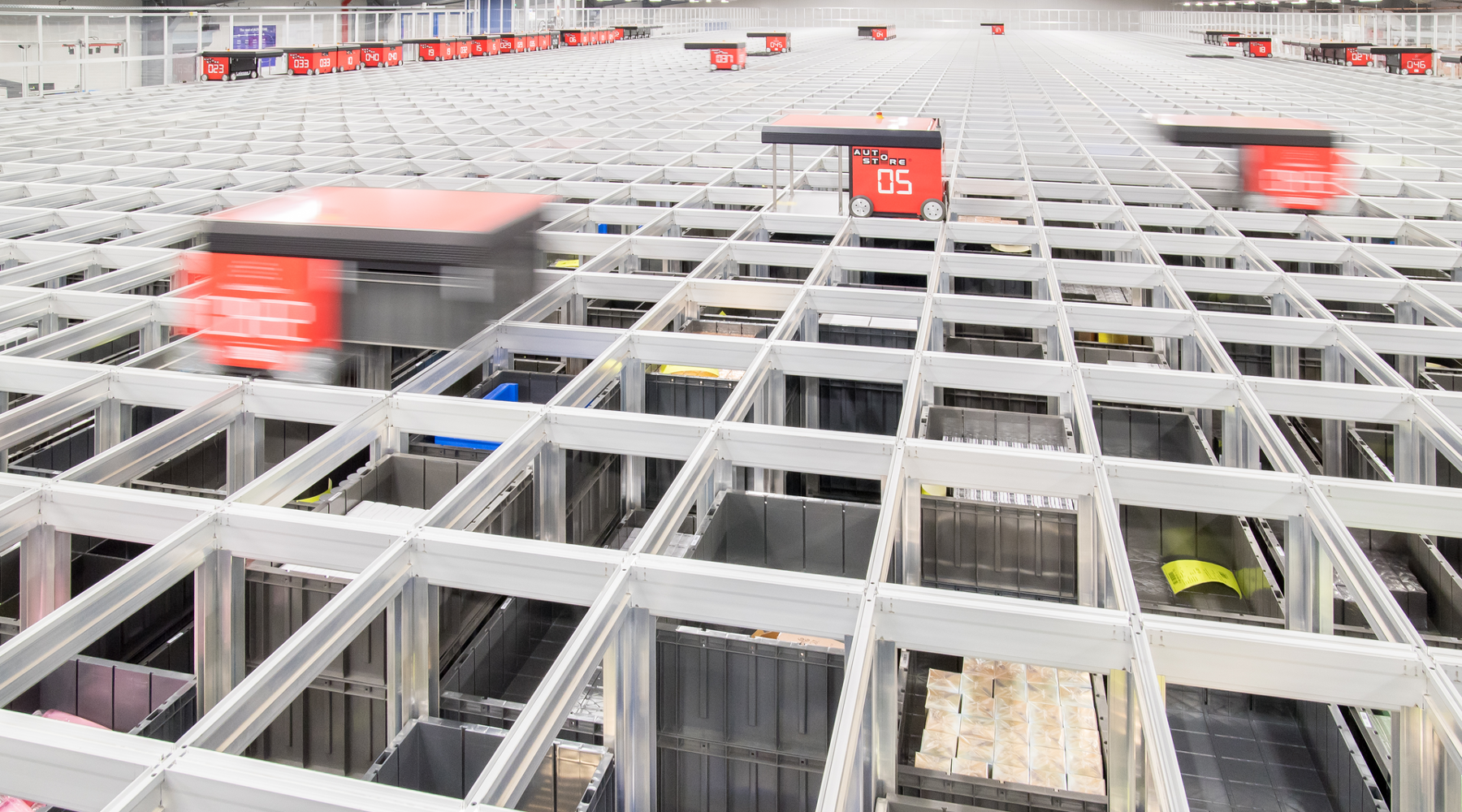What is FMCG?
What does fast moving consumer goods (FMCG) really mean? Get the answer in this short blog and learn how you can stay ahead with the right strategies and technologies.
Key takeaways
- Fast-moving goods require rapid fulfillment, accurate tracking, and constant replenishment.
- Short shelf lives, SKU variety, temperature control, and high order frequency push warehouses to their limits.
- Smart warehouse managements systems (WMSs), RFID, AI, and forecasting tools are essential for staying agile and accurate.
- Solutions like AutoStore boost throughput, reduce labor dependency, and handle peak demand effortlessly.
- Cross-docking, micro-fulfillment, and real-time data help optimize operations and cut delivery times.
Understand the meaning of FMCG
FMCGs are the everyday essentials people grab off shelves without a second thought: snacks, soap, bottled drinks, and more. But behind the convenience lies a high-speed supply chain where timing is everything.
In the FMCG industry, products move fast and your warehouse needs to move even faster. High volumes, low costs, short shelf lives, and constant demand mean operations must be sharp, scalable, and seamless.
Think snacks, shampoo, cleaning products, and over-the-counter medicine. These are the items that fill grocery carts, restock daily, and drive high-volume turnover in warehouses across the globe.
What makes the FMCG sector unique isn’t just speed, it’s scale. Unlike durable goods (like furniture or appliances), FMCG products have shorter shelf lives, tighter margins, and rely on speed and precision to meet demand. That means your inventory, storage, and fulfillment processes have to be faster and more flexible than ever.
Let’s answer some quick-fire questions you might have:
- What is an example of FMCG? Bottled water, chocolate bars, toothpaste, or laundry detergent — everyday items with fast sell-through.
- What is an FMCG company? Brands like Unilever, Procter & Gamble, and Nestlé produce high-volume consumer goods, often operating on razor-thin timelines.
- Is McDonald’s FMCG? Yes — McDonald’s fits into the FMCG industry because it delivers fast, standardized food products to a mass market.
- What is the difference between consumer packaged goods (CPG) and FMCG? Both refer to packaged consumer goods, but “FMCG” emphasizes speed and frequency of purchase, while “CPG” is a broader term that may also include slower-moving products.
Understanding this distinction is the first step to mastering the warehouse demands behind these products. Next, let’s look at why FMCG puts pressure on your warehouse like few other industries can.

Why FMCG puts pressure on your warehouse processes
In the FMCG industry, speed isn’t a luxury, it’s a requirement. Warehouses handling fast-moving consumer goods face constant pressure to deliver quickly, accurately, and at scale.
Here’s why:
- High volume: FMCG products move in huge quantities. Your warehouse must handle frequent, fast-paced replenishment with zero slowdown.
- Short shelf life: Items like food or personal care products can’t sit still. Delays risk spoilage or missed sales opportunities.
- Rapid order cycles: Retailers and consumers expect fast, just-in-time delivery. Your fulfillment process needs to be agile, not reactive.
Together, these factors demand a warehouse that runs with speed, precision, and flexibility. Now, let’s explore the biggest challenges standing in the way.
Key warehouse challenges when handling FMCG products
FMCG warehousing is demanding and here are four challenges that can quickly impact efficiency and accuracy:
Short shelf-life management
Perishable goods need strict first-expired, first out (FEFO) tracking and real-time visibility to avoid spoilage and costly waste.
SKU complexity
With constant product variations and limited-time offers, managing a high volume of SKUs without slowing down picking is critical.
Temperature and compliance
Many FMCG products require cold storage and regulated handling and mistakes can lead to waste or violations.
High picking frequency and returns
Frequent, smaller orders and higher return rates, especially in e-commerce, require fast, reliable fulfillment and reverse logistics.

Learn More About The Game Changer
For Temperature Controlled Storage
The AutoStore Multi-Temperature Solution™
Sound familiar? The good news is, the right tools and layout can help solve these issues. Let’s see why delivery speed is the next make-or-break factor for your operation.
Speed is key for deliveries and expectations
For many businesses delays aren’t just inconvenient, they’re also costly. This is especially true for FMCG companies. Whether you're restocking retail shelves or fulfilling online orders, every minute counts.
Here are a few of the struggles and expectations that these companies are dealing with:
- Retailers demand on-time delivery: Supermarkets and convenience stores run tight schedules. A missed delivery can mean empty shelves, lost sales, and penalties from retail partners.
- Consumers expect instant gratification: From same-day groceries to next-day personal care, the bar for fast fulfillment has never been higher. Slow shipping damages brand loyalty and your reputation.
- Real-time inventory and smart routing are critical: To keep up, you need complete visibility across your warehouse. Real-time data ensures accurate stock levels, while intelligent routing cuts down travel time and speeds up order processing.
In FMCG, speed wins. So how do you keep pace without sacrificing accuracy? The answer starts with the right technology. Let’s explore what your warehouse needs to stay ahead.
Necessary technologies for efficient FMCG warehousing
In FMCG, outdated systems slow you down. The right technology keeps your warehouse fast, flexible, and accurate.
The following list contains a few of them that are helpful:
- WMS and forecasting tools: A smart warehouse management system (WMS), paired with ERP and demand forecasting, ensures real-time control and faster decision-making.
- Barcode and RFID tracking: Barcode scanners and RFID tags provide instant inventory updates, reducing errors and speeding up fulfillment.
- AI for demand planning: Artificial intelligence predicts demand shifts and helps optimize stock levels—minimizing waste and avoiding stockouts.
Read more about RFID tags impact on inventory management!
With the right tools in place, your warehouse can keep up with the pace of the FMCG sector. Next, let’s look at how automation can take that speed to the next level.
How does automation transform FMCG warehousing?
When every second matters, automation becomes your competitive edge and also a necessity. Here’s how automation helps you keep up:
Automated storage and retrieval systems (AS/RSs) like AutoStore boost speed and efficiency: The cube-based AS/RS from AutoStore lets you store more in less space while delivering items to pickers in seconds. It’s fast, scalable, and ideal for high-SKU, high-throughput FMCG environments.
Reduce labor dependency, increase reliability: With automation, your operation runs smoothly, even during labor shortages or peak seasons. Robots don’t slow down, call in sick, or make picking errors, helping you meet demand without increasing headcount.
Handle SKUs with precision using pouch sorters and robotics: Integrated pouch sorters work in tandem with AutoStore to sort, buffer, and sequence items efficiently. This seamless handling of diverse SKUs enables faster order consolidation and packing, especially in e-commerce fulfillment.
Real-world example
HTG is a third-party logistics (3PL) provider that stores and distributes common brands like Smirnoff, Johnnie Walker, Nivea, and Dove for online and storefront retail throughout Europe. To manage the pace of FMCGs, HTG uses AutoStore integrated with their proprietary BiT enterprise resource planning platform at its bonded warehouse in Delfzijl, Netherlands.
BiT optimizes core fulfillment activities like inventory management, customs and excise declaration, and goods flow, ensuring that every process moves swiftly and efficiently. Meanwhile, their workforce of AutoStore Robots runs 24/7, never slowing down or taking breaks.
The combination of software and hardware has resulted in quicker, more cost-efficient, and flexible delivery for customers: HTG can fulfill orders in less than 2.5 hours, on average.
AutoStore's condensed Grid has reduced storage space by 75%, enabling HTG to continually diversify and expand the number of brands it serves under one roof.

HTG's story shows how automation allows you to scale without compromise. And when combined with smart tech and tight processes, it turns your warehouse into a true FMCG performance engine. Up next: how to scale without slowing down.
How to prepare your warehouse for FMCG growth
Growth can come fast in the FMCG business. To make sure you’re ready for it, your warehouse needs to be prepared to expand without missing a beat.
3 tips for how to prepare to scale quickly:
- Go modular with scalable automation: Solutions like AutoStore grow with you. Add robots or ports as demand rises and you will get no downtime, no reconfiguration.
- Use cloud-based FMCG software: Cloud systems flex with your volume, making it easy to handle spikes without slowing operations.
- AutoStore in action: FMCG brands use AutoStore to stay fast and accurate, even during peak periods, when order volume surges.
Conclusion
The FMCG industry moves fast and your warehouse needs to move faster. From managing short shelf lives and complex SKUs to meeting sky-high delivery expectations, the pressure is constant. But with the right mix of smart software, real-time visibility, automation, and scalable solutions like AutoStore, your operation can stay ahead of demand today and tomorrow.
Whether you're optimizing for speed, reducing waste, or preparing for peak growth, AutoStore gives you the tools to turn challenges into competitive advantages.
Ready to transform your FMCG warehousing? Contact us today and discover how we can help you scale smarter, move faster, and stay ahead.
FAQ
What is an example of FMCG?
An example of an FMCG is an everyday item like bottled water, toothpaste, snacks, soap, detergent, and over-the-counter medicines. These products are low-cost, sell quickly, and are purchased frequently.
What is the difference between CPG and FMCG?
Both refer to consumer goods, but FMCG emphasizes speed and frequency of purchase, while CPG (consumer packaged goods) is a broader term that also includes slower-moving items like electronics or household tools.
What is an FMCG company?
An FMCG company manufactures or distributes fast-moving consumer goods. Examples include Unilever, Nestlé, Procter & Gamble, Coca-Cola, and PepsiCo. These companies operate at high volume and depend on rapid, efficient supply chains.












